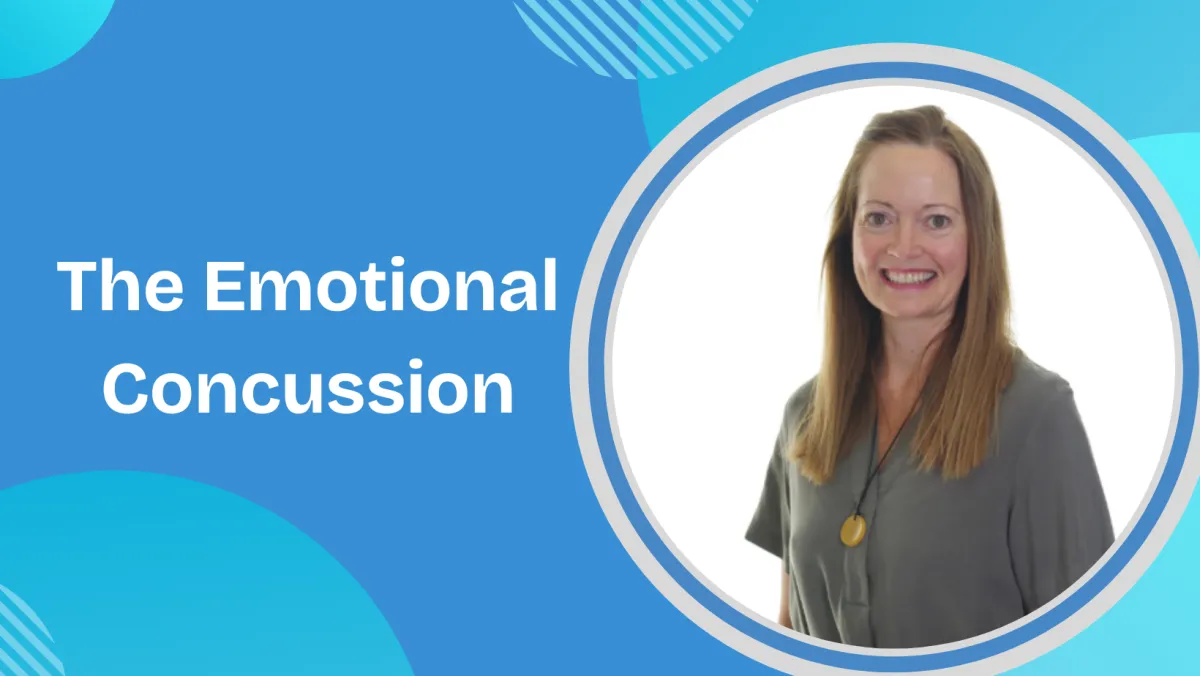
The Emotional Concussion
The Emotional Concussion
Details
Written by: Michelle Davies
Published: 24 July 2025
Created: 24 July 2025
Last Updated: 24 July 2025
Why you feel foggy, overloaded, and disconnected — without ever hitting your head
You don’t need to fall, crash, or bang your head to feel concussed.
I see it all the time.
People walk into session overwhelmed, disoriented, and exhausted.
They say things like:
“It’s like my brain’s shut down.”
“I can’t think clearly — everything feels foggy.”
“There’s pressure in my head, but no one can find anything wrong.”
No scan shows it.
Blood tests come back normal.
But the body is clearly in crisis.
This is what I call an emotional concussion — and it’s very real.
What is an emotional concussion?
It’s a state where the nervous system enters shutdown — not from a physical head injury, but from emotional overload, systemic inflammation, and long-held trauma stored in the tissues.
The symptoms mirror post-concussion syndrome:
• Brain fog
• Dizziness or unsteadiness
• Light and sound sensitivity
• Fatigue and mood swings
• Trouble focusing or finding words
• Feeling disconnected from yourself and your surroundings
But there’s no blow to the head.
The “injury” is emotional, chemical, and neurological — and it often begins in the gut.
The gut–brain link: the silent trigger
When the gut lining becomes inflammed or permeable (often called leaky gut), tiny particles that should remain in the digestive system leak into the bloodstream — things like toxins, undigested food proteins, and pathogens.
These circulate and eventually reach the brain, especially if the blood–brain barrier is also compromised.
The result is neuroinflammation — the brain’s immune response.
This creates a foggy, fatigued, emotionally unstable state that can look exactly like concussion.
But nothing ever hit your head.
Your body is inflammed. Your brain is overwhelmed. Your rhythm is blocked.
What I feel with my hands
As a healer in osteopathy, I tune into the subtle cranial rhythm — the movement of cerebrospinal fluid that flows through the spine and brain, protecting and nourishing the nervous system.
In someone with emotional trauma, gut-brain disruption, or unresolved tension, that flow becomes compressed and stuck.
It feels as if the entire system has locked down.
Just like a head trauma… except there was none.
The trauma is internal.
The overload is energetic, emotional, and physiological — not mechanical.
It’s not “just in your head”
It’s not stress. It’s not weakness.
And it’s not something you can “push through”.
This is a real pattern I witness again and again in people who’ve lost their spark, their clarity, their sense of self — and can’t explain why.
The good news is: your body knows how to heal.
It just needs the right kind of support.
What supports healing?
✅ Hands-on cranial work to restore rhythm and flow
✅ Grounding and stillness to bring the nervous system out of overload
✅ Gut support to reduce internal inflammation
✅ Emotional release — safely, gently, in your own timing
✅ A safe therapeutic space where you’re fully seen and held
Final words
If you feel like you’re surviving instead of living…
If your thoughts are cloudy, your body unsteady, your emotions unpredictable…
You may be experiencing an emotional concussion.
And it can be resolved — not through force or quick fixes, but through presence, precision, and connection.
Your clarity is not lost.
It’s simply waiting for the pressure to lift and the flow to return.
